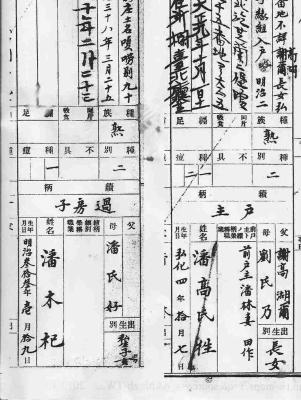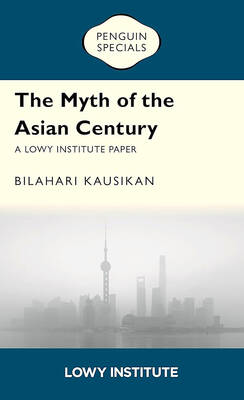At the Spot – Taipei Film House (台北光點) cafe on a sunny weekend afternoon, Hong Kong's award-winning veteran music video director Susie Au (區雪兒) sat with local press for an in-person exposition on her alternately enthralling and unfathomable feature debut Ming Ming, which mixes martial art with love story elements to create a strange filmic world out of the familiar materials.
"I've always had a keen interest in the lady Robin Hood genre films popular in Hong Kong during the 1960s. It was later developed into sub-genres with female secret agents that had the look of low-budget James Bond movies. The recurring motif of a search for identity and the presence of a strong heroine is what fascinates me and inspires my works," Au said, explaining the genre-mixed Ming Ming in a nutshell, perhaps.
China's beloved actress Zhou Xun (周迅) stars in dual roles, first as Ming Ming, a gothic-looking kung fu heroine falling for D (Daniel Wu), a desirable enforcer of triad boss Brother Cat (Jeff Chang), who will run off to Harbin with any of his female admirers who can give him five million dollars. In order to be with the man of her dreams, Ming Ming robs Brother Cat for the necessary cash. She also takes a mysterious wooden box that the ringleader is keen to have back at any price.

PHOTOS: COURTESY OF SKY DIGI ENTERTAINMENT
Fending off the pursuing thugs with her other-worldly martial art skills that involve shooting black beads to injure opponents, Ming Ming hands over the money to her secret admirer and street punk Tu (Tony Yang). During a chase with the goons, the boyish ally runs into Nana (also played by Zhou Xun), an orange-haired Ming Ming look-alike with a sassier, more girlish manner. The two become reluctant traveling companions in the search for the whereabouts of D as Nana, yes, you've guessed it, is also one of D's girlfriends.
Meanwhile, D is in Shanghai pursuing his own quest: looking for his long-lost mother. As the four are left dismayed and disappointed in their searches across the maze-like metropolis, the pending connection between D's tortured past and the wooden box eventually comes to a shocking revelation that no one in the audience is likely to guess.
The film relies on recycling and collage. With abundant references to pop culture and MV-influenced filmmaking styles that dazzle and awe, the movie is a cinematic cocktail of familiar images and music.

Citing Jean-Luc Godard as her favorite director, Au speaks of Ming Ming's cinematic references in relation to the French New Wave of the 1960s. The New York-educated director believes that to eschew a conventional filmmaking route doesn't necessitate being anti-traditional, and allows for revisiting the familiar to cast new light on it.
Cut into the movie is footage from a 1960s black-and-white lady Robin Hood movie. This sets the tone early in the film as the heroine embodies the enduring spirit that allows people to change their fate, said Au.
This theme may explain the surprising coda that seems to come from nowhere. "Rather than being narratively built up according to a conventional formula, the last 10 minutes of the film can be seen as a symbol, a metaphor and the spirit of the film," Au said.

Blessed with top-notch cinematography, art direction and sound track, the sometimes excessive visual acrobatics however lend the film a tension that oscillates between a purely sensory pop-art experience and thematic depth. Freeze frames, disjointed, hip editing and rapid cuts are executed with flair and the highly gratifying sound track is well produced by the talented Anthony Wong Yiu-Ming (黃耀明), among others. While the style alone seems enough to carry the film, the unevenly delivered and disconnected story lines and overly stylized look fail to provide a substantial dramatic weight and are likely to alienate audiences instead.
Zhou leads a strong cast of actors including Jeff Chang (張信哲), the 90s prince of Chinese pop ballads. He doesn't need much acting skill to fit the hermaphrodite ringleader role. Hong Kong's heartthrob Wu is seen struggling with the two-dimensional role of the brooding enforcer and as an object of desire in the eyes of female spectators.
Zhou and Taiwan's emerging star Yang turn in respectable performances as the Nana and Tu duo that occupies more screen time and has a more focused story line than Ming Ming's. The tender romance between the two is the most genuinely satisfying moment of human emotion in the film.
As for her next project, Au said she would like to continue the genre-hybrid project that will take its cues from musicals and female secret agent stories. "I want to tell stories about women, about their strength and their persistent attitude toward life," said the director, promising to add more intriguing women characters to the silver screen.

Feb. 9 to Feb.15 Growing up in the 1980s, Pan Wen-li (潘文立) was repeatedly told in elementary school that his family could not have originated in Taipei. At the time, there was a lack of understanding of Pingpu (plains Indigenous) peoples, who had mostly assimilated to Han-Taiwanese society and had no official recognition. Students were required to list their ancestral homes then, and when Pan wrote “Taipei,” his teacher rejected it as impossible. His father, an elder of the Ketagalan-founded Independence Presbyterian Church in Xinbeitou (自立長老會新北投教會), insisted that their family had always lived in the area. But under postwar

In 2012, the US Department of Justice (DOJ) heroically seized residences belonging to the family of former president Chen Shui-bian (陳水扁), “purchased with the proceeds of alleged bribes,” the DOJ announcement said. “Alleged” was enough. Strangely, the DOJ remains unmoved by the any of the extensive illegality of the two Leninist authoritarian parties that held power in the People’s Republic of China (PRC) and Taiwan. If only Chen had run a one-party state that imprisoned, tortured and murdered its opponents, his property would have been completely safe from DOJ action. I must also note two things in the interests of completeness.

Taiwan is especially vulnerable to climate change. The surrounding seas are rising at twice the global rate, extreme heat is becoming a serious problem in the country’s cities, and typhoons are growing less frequent (resulting in droughts) but more destructive. Yet young Taiwanese, according to interviewees who often discuss such issues with this demographic, seldom show signs of climate anxiety, despite their teachers being convinced that humanity has a great deal to worry about. Climate anxiety or eco-anxiety isn’t a psychological disorder recognized by diagnostic manuals, but that doesn’t make it any less real to those who have a chronic and

When Bilahari Kausikan defines Singapore as a small country “whose ability to influence events outside its borders is always limited but never completely non-existent,” we wish we could say the same about Taiwan. In a little book called The Myth of the Asian Century, he demolishes a number of preconceived ideas that shackle Taiwan’s self-confidence in its own agency. Kausikan worked for almost 40 years at Singapore’s Ministry of Foreign Affairs, reaching the position of permanent secretary: saying that he knows what he is talking about is an understatement. He was in charge of foreign affairs in a pivotal place in